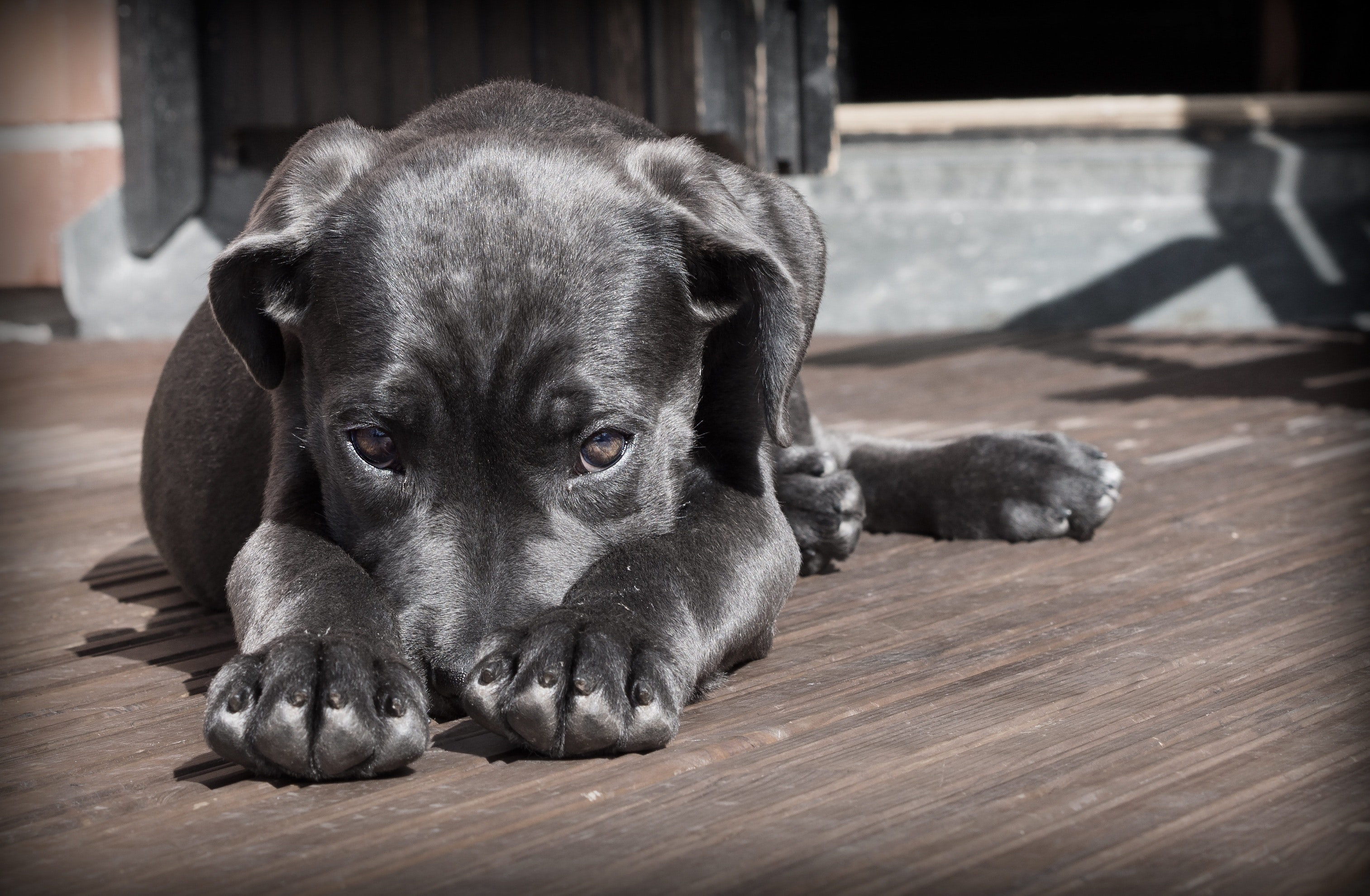
Phobias are a type of anxiety disorder which can have a significant impact on the quality of life
of an individual. It can limit your daily activities and can cause fear and anxiety when exposed to
the object of the phobia. Any phobia can impact your everyday life. But have you thought about
your canine friend? Does your dog also get different types of fears and phobias? The answer is
yes. Fears and phobias are common, and dogs too suffer from different kinds of fears and
phobias.
There are differences between a fear and a phobia. Fear is an emotional response or reaction
caused by the threat of danger whereas a phobia is an excessive fear of an object or a situation.
A fear becomes a phobia when they cause anxiety, and it is essential to know that dogs suffer
from several fears and phobias. Fears and phobias can affect dogs of all breeds and ages. In this
article, we will discuss some of the commonly found fears and phobias in dogs and how you can
help them overcome these. Keep on reading to know more about the fears and phobias in dogs:
1. Astraphobia (Fear of thunder)
Thunderstorm phobia, also known as astraphobia in dogs is widespread. Fear of thunder is
mainly because most dogs are afraid of loud and unpredictable noises. Some dogs can even
sense the coming of a thunderstorm way before you detect it.
How to help them overcome the fear of thunder?
• Play calming music and keep him distracted.
• Give your dog a crate or safe indoor area where he can go if there is a storm.
• Prepare your dog for the storm time. Download thunderstorm recordings and play them
at a shallow volume. Playing the recorded sound will help your dog adjust with the
sound of thunder.
• Buy a storm jacket for your dog.
• Consider snug-fitting shirts and wraps.
• Talk to your veterinarian if it is severe. The vet might recommend a low-dose of anti-
anxiety medication in such a case.
2. Fear of the Veterinarian
It is not unusual for dogs to be afraid to take a trip to the veterinarian’s office. However, this
fear can be dangerous, risky, and can harm your dog in a lot of ways.
How to help them overcome the fear of the veterinarian?
• Take your dog to the vet for a few social visits before the examination day. You may ask
the vet staff when you can visit it. Most vet staff will happily help you in making your
dog more comfortable with the vet staff.
• If your dog doesn’t like that vet, change the vet. Try to find a vet that connects with your
dog.
• Use a muzzle during trips to the vet.
3. Fear of riding in cars
Some dogs get car sick, and some get very afraid that they may even feel nauseated during car
rides. Fear of riding in cars can happen because of lack of exposure to vehicles or if they are
only going on a trip for a visit to the vet. This fear can have long-term effects. Use the following
tips to reduce the stress of riding in cars.
How to help them overcome the fear of riding in cars?
• Slowly lure your dog into the car and get your dog familiar with your vehicle.
• Play and spend some time with your dog inside the car. Begin by keeping the doors
open so that your dog doesn’t feel trapped inside.
• If the fear of riding in cars is because of the fear of the destination. We would suggest
you take your dog to a dog park in the car to alleviate your dog’s stress.
4. Fear of Strangers
A dog that has a fear of strangers may growl, snap or even bite other people as a result of this
fear. It could make your dog aggressive. On the other, some dogs become shy and move away
whenever a stranger approaches.
How to help them overcome the fear of strangers?
• Never force your dog to interact with any new person. Let them stay in their comfort
zones. Tell your visitor that they should not attempt to pet or make eye contact with
your dog.
• Use a crate and make sure your dog feels safe there.
• Be polite with your dog and don’t ask them to perform tricks in front of strangers.
• It may result in biting. Therefore, it will be a good idea to consult a dog trainer or
behaviorist and reduce the risk of biting.
5. Fear of being left alone
Like humans, dogs also fear being left alone. It is also known as separation anxiety or
monophobia. A dog suffering from separation anxiety may bark or howl whenever left alone.
How to help them overcome the fear of being left alone?
• Reward your dog with a unique treat each time you go. For example, you may give him a
puzzle toy.
• Give them over-the-counter natural supplements. Talk to your vet for the right dosage.
• Leave some clothes that smell like you.
• Keep your dog busy and happy because a happy dog is less likely to be stressed when
you leave.
Unfortunately, dogs suffer from a lot of fears and phobias in their lifetime. Phobias can be
severe and if your dog is suffering from any of these phobias, try consulting a professional
trainer or a veterinarian.